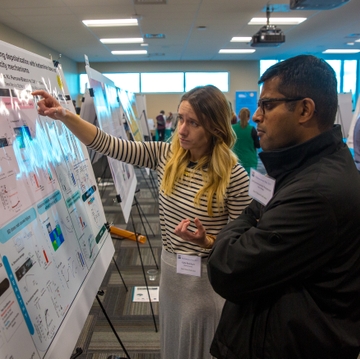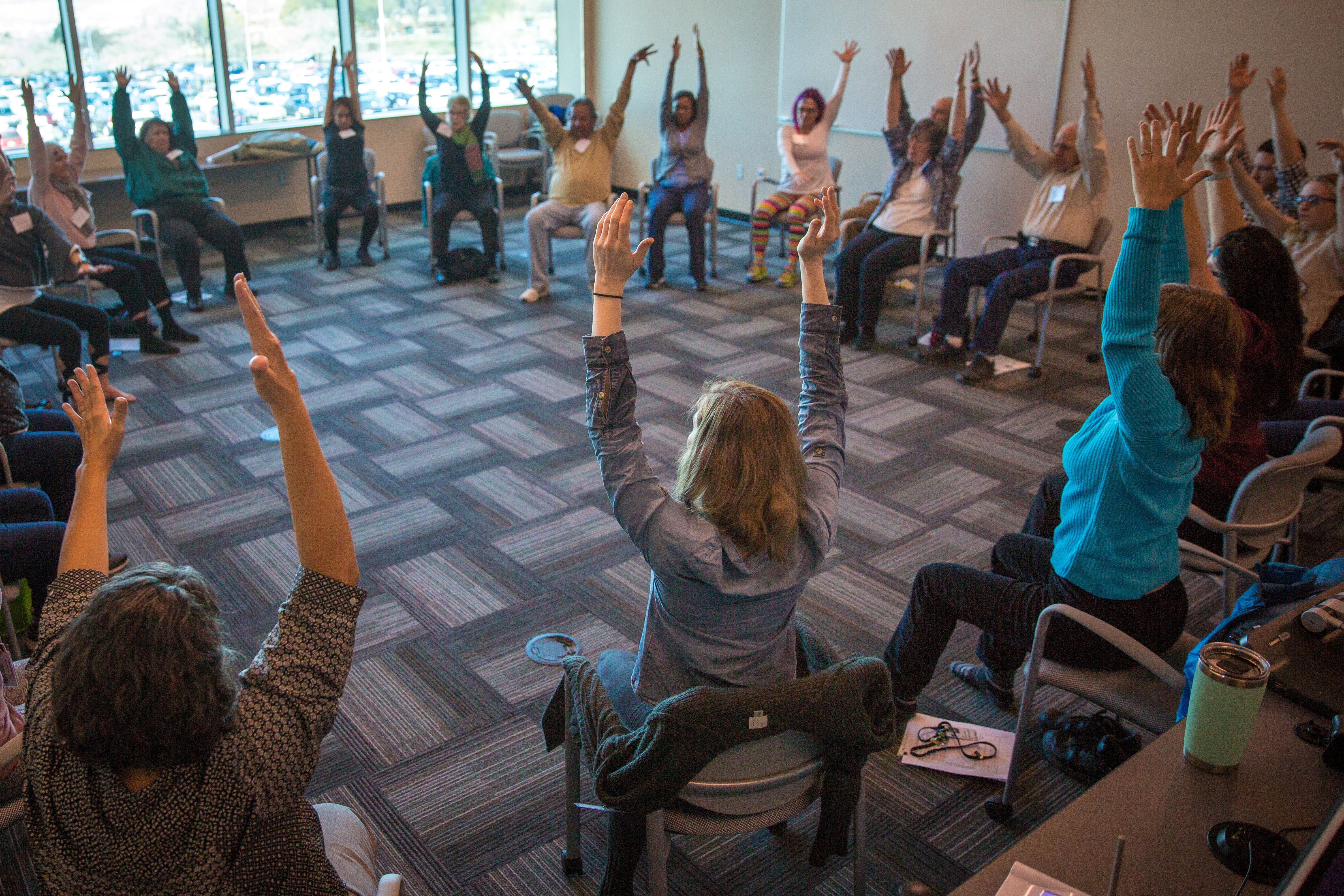Preparing for Disaster: UNM Hospital Participates in Region-Wide Emergency Training

Figuring Out How Alcohol Does Its Dirty Work
UNM Neuroscience Day 2018 Highlights Research Toward a Cure for Fetal Alcohol Spectrum Disorders and Related Genetic Mutations
When it comes to disrupting brain function, alcohol is an equal opportunity offender, affecting many different neural receptors at once.
"This gives new meaning to the phrase 'dirty bourbon,'" joked neuroscientist C. Fernando Valenzuela Thursday as he delivered his remarks for the Michael C. Wilson Memorial Lecture, a highlight of the UNM Health Sciences Center's annual Neuroscience Day event.
Unlike many other drugs, there is no single brain region affected by alcohol or receptor molecule that it binds to, said Valenzuela, a professor in the Department of Neurosciences whose research centers on the effects of alcohol on the brain, starting from pregnancy and stretching throughout a person's life.
Alcohol disrupts the balance of neurotransmitters - chemical messengers between brain cells, Valenzuela explained. Under normal conditions, neurotransmitters that silence brain cells are balanced with those that increase the communication between cells. Alcohol tips the scales not only reduces brain cell activity, but it also causes the brain to overcompensate later by increasing activity to abnormal levels after alcohol is no longer present.
About 56 percent of adults say they have drunk alcohol in the past month, with 7 percent saying they have engaged in binge drinking, according to the 2015 National Survey on Drug Use and Health. Some 15.1 million adults were found to have alcohol use disorders, but only 6.7 percent had been treated.
"That is really sad," Valenzuela said, "and we need to do better."
The effects of alcohol differ depending on amount consumed, brain regions, a person's age, environment and even their genetics, Valenzuela said. "Heavy drinking, for sure, has many direct effects throughout the brain." Adolescents experience fewer of alcohol's negative effects than seniors, but they are more prone to hazardous behaviors and substance abuse later on in life.
It is this developmental aspect of alcohol exposure that Valenzuela and his team have jumped on - fetal alcohol spectrum disorders (FASD) in particular. These disorders afflict children who have developed physical, growth and mental abnormalities due to their mothers' drinking during pregnancy.
Valenzuela likened it to an iceberg. In the case of FASD, the tip of the iceberg are the physical and growth anomalies that can be readily diagnosed. In contrast, many more children who are on the FASD spectrum, but do not have physical abnormalities, may have severe neurological deficits that remain hidden.
"This is one of the most devastating effects of alcohol consumption and it should not happen," Valenzuela said.
His research has revealed that alcohol given to mice during pregnancy causes brain cell death during fetal development. He also found that a single amino acid change within a gene involved in nervous system development - brain-derived neurotrophic factor (BDNF) - can affect mice exposed to alcohol before birth and after. He observed that mice with this genetic mutation had smaller brain volumes in areas related to memory and emotion.
Valenzuela is optimistic that his team's research may help these children someday. If researchers can identify those who have this genetic mutation, they may be able to predict who is at risk for alcohol abuse.
"There is hope," Valenzuela said. "There are a lot of things in the pipeline in research that will go live soon."
Neuroscience Day 2018, sponsored by UNM's Brain & Behavioral Health Institute, drew nearly 200 registered participants, including presenters, faculty and students from across the University of New Mexico, as well as community members and advocates for those with neurological disorders.
Neuroscience Day is held annually during Brain Awareness Week, which aims to "provide understanding internationally of the brain," said BBHI director Bill Shuttleworth, PhD, Regents' Professor in the Department of Neurosciences. Neuroscience Day itself aims to connect neuroscientists and researchers with community members and advocacy groups from around the state.
The Michael C. Wilson Memorial Lecture is named for a Neurosciences colleague who passed away in 2014. Michael Wilson was "an intellectual force," Shuttleworth said. "He was a really amazing neuroscientist, and we were really lucky to have him at UNM."
